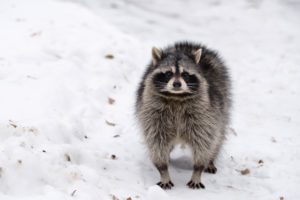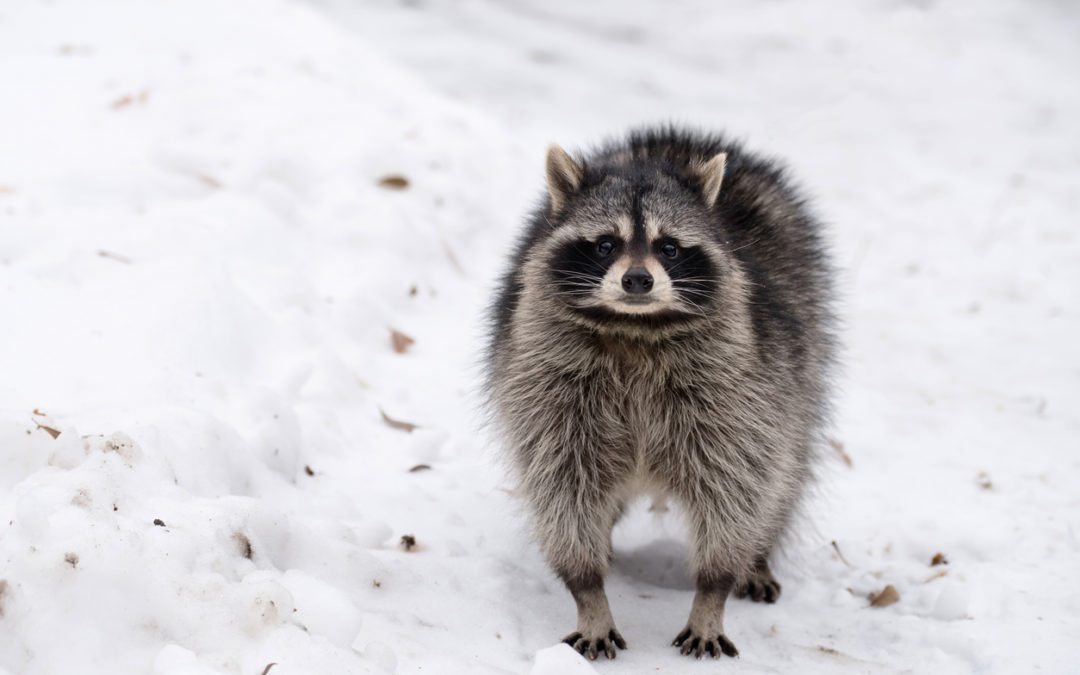Which animals can cause problems for you in winter? From building huge food pantries to hibernation to snuggling up with one another to stay warm, every species has its own method for surviving the winter. Just like humans, animals who live in this part of the country year round without migrating have adapted to the bitter weather December brings. Though we don’t see them as often, animals are around us year-round. Let’s talk about what kind of wildlife control you might need in the wintertime.
Squirrels
Squirrels remain very active during the winter, which is why you’ll see them frolicking about even when there’s snow on the ground. Attic spaces may be far more appealing to squirrels in the winter due to the warmth and shelter they provide, and homeowners typically find them to be a much larger nuisance when it’s cold. They spend the fall gathering and storing nuts, grains, and seeds throughout their territory so they will have caches of food to last them throughout the cold months. These stores allow them to avoid having to search for nourishment when the weather is inclement, which means if they’ve hoarded food in an attic, they may remain inside that home for long periods of time. In the outdoors, squirrels keep many nest sites and will rebuild them when damaged. When the trees are bare, it’s easy to spot these basketball-sized clumps of leaves and twigs.
Skunks
Skunks will live in the same areas during the winter as they do when it’s warmer, burrowing under decks, patios, and stoops. But because they are less active, skunks go largely unnoticed, and many people assume that they are hibernating. Contrary to this popular belief, skunks do not engage in full hibernation but will enter into torpor during bouts of extreme weather. Torpor is a state of reduced activity when an animal’s body temperature and metabolism is lowered in order to preserve energy. Hibernation is a form of torpor, but not all torpor is hibernation. It’s not uncommon for skunks to go for several days or even a week without food or water when it is too cold to leave their den, but they will leave on a semi-regular basis to hunt for nourishment. Skunks also live in larger communities during the winter. This practice is called social thermal regulation, which is a fancy way of saying that they live and sleep in big groups in order to stay as warm as possible.
Chipmunks
Chipmunks are also far less active when the temperature drops outside. Similar to squirrels, during the fall, chipmunks will gather enough food to last them through the winter. Unlike squirrels, chipmunks nest in underground burrows consisting of a complicated series of tunnels and chambers that can sometimes be as large as 10 feet long. They also engage in torpor, dropping both their body temperature to as low as 40 degrees Fahrenheit and their heart rate to as few as 4 beats per minute. Every few days, they will wake to eat, urinate, and defecate. Because they are able to survive entirely off of their stored food, chipmunks almost never leave their burrows in winter, so they aren’t typically a wildlife control problem for homeowners during this time of year.
Wildlife Control in Winter
Even though most animal activity dies down when it’s cold, they can still cause problems, especially if they’ve built their winter home in, under, or near
Sharing is caring! If you’ve learned something from what you’ve read, please click one of the icons below to share this post on social media.



